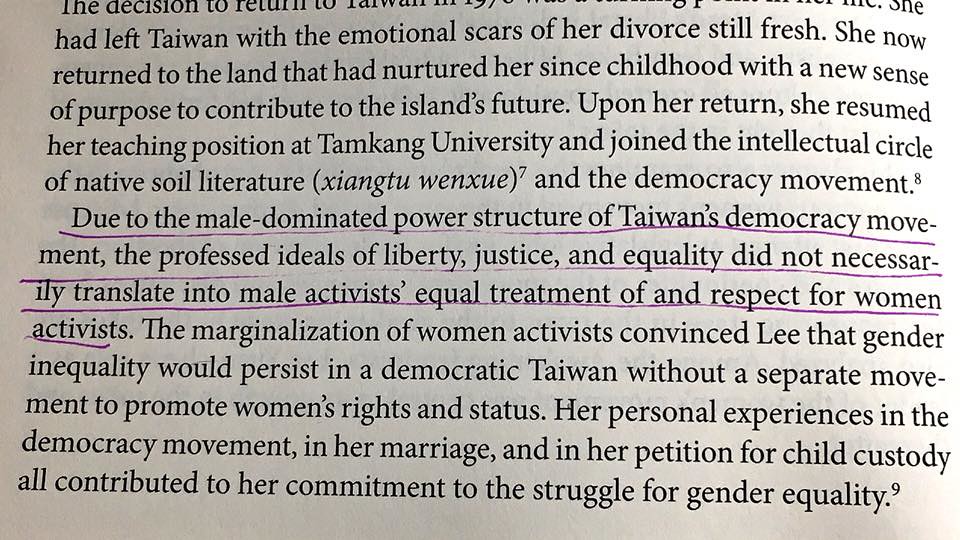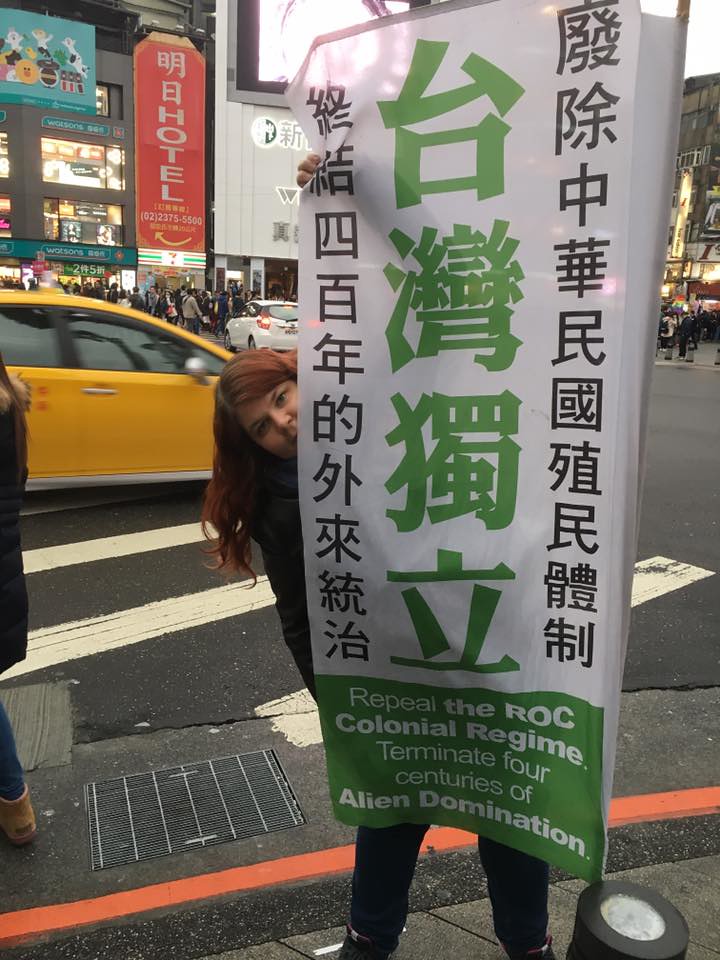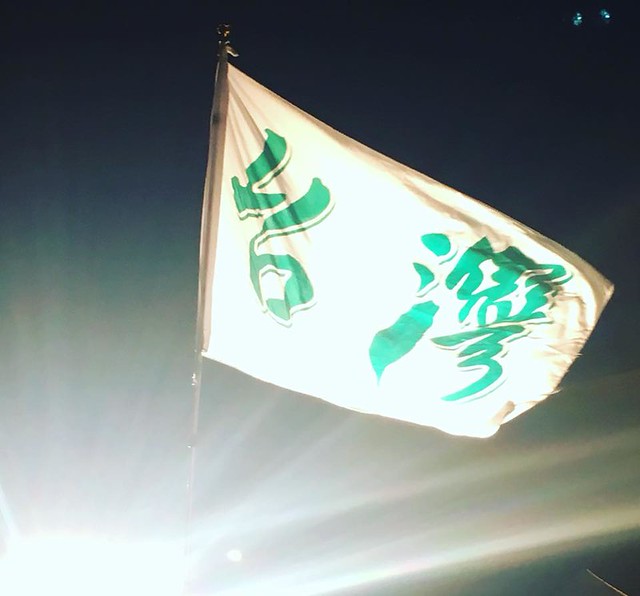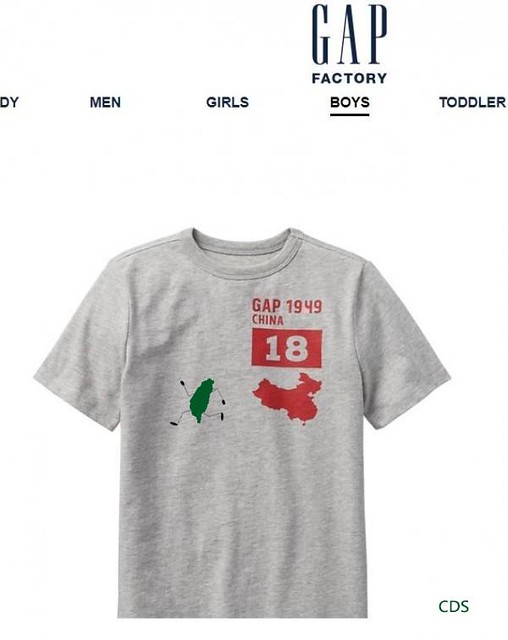 |
| This passage is about Lee Yuan-chen, not Annette Lu, but the point applies regarding how she's been treated. |
Add former Vice President Annette Lu (呂秀蓮) to the list of people who vex me. Reading more about her contributions to the feminist movement in Taiwan was the most impactful part of Doris Chang's Women's Movements in Twentieth-Century Taiwan for me, so I'd like to devote a post to talking about that before I drop a more complete review.
The book devotes a long chapter to Lu, who these days has a reputation for being both off-kilter and out-of-touch. It's not hard to see why.
When looking into what people dislike about Lu, I find stories that range from an odd trip to Indonesia as vice president (reported sympathetically in the Taipei Times) to comments on AIDS that many took as blaming gay men for the AIDS crisis as "God's punishment" (and frankly, I have to agree with that interpretation of her meaning) to a confusing proposal for Taiwan's diplomatic neutrality to completely unwarranted attacks on Mayor Ko and last year's Universiade. And, of course, announcing her intention to run for Taipei mayor when she is, frankly, not all that popular and doesn't seem to realize it. And, of course, there's her support of the ill-fated 'independence referendum' which takes so much energy that could be used to combat real threats to a more liberal future for Taiwan, and pours it into a big fat waste of time.
Then there is what I saw myself: She came to the 330 protest to support the 2014 Sunflower Movement (I don't have a link, I'm telling you this because I watched her walk by with my own eyes), despite the movement having little to do with her, and the general feeling that the DPP was trying to capitalize on the movement to build their own support when the Sunflowers themselves were not particularly interested in DPP party politics. Actions like this were a part of why many Taiwanese on the fence about the Sunflowers came to believe they were a DPP plot, when they were nothing of the sort.
Chang, on the other hand, focuses specifically on Lu's activities in the 1970s, and makes it quite clear that Taiwan would not be where it is today vis-a-vis women's equality if not for her. A thread of belief is drawn between her - the first and most prominent Taiwanese feminist of the second half of the twentieth century - and the women's groups of early-20th century Japanese Taiwan, but makes it clear that from a research/scholarship standpoint, there is no evidence that the movement Lu ignited (no, it is not an exaggeration to say so) was directly related to earlier women's rights activities in the country. I do not think it is too much of a stretch to say that perhaps the reason why Taiwan is ahead of the rest of Asia when it comes to women's issues is in large part thanks to her. She didn't do everything - there are many other notable Taiwanese feminists of the 80s and 90s - but she struck the match in the 1970s and that means something. She printed books, founded associations and opened hotlines during a time when one could be arrested or 'watched' for doing so: and she was.
Her feminism was not perfect: she was in favor of ending arranged marriage (still somewhat common in Taiwan even as late as the 1970s) and she herself chose not to marry. She spoke out in favor of women succeeding professionally, as she had done. However, she tried to build support through compromise: not attacking the (wrong) idea that women still had specific duties in the home that should not be done by male family members, with no ideas as to how to ease the 'double burden' this dual set of responsibilities - familial and professional - puts on women. She was not in favor of pre-marital sex (though advocating for not discriminating against those who chose to engage in it). She tried to marry feminism with the idea of Confucian duty, and frankly, it didn't work well for good reasons.
In fact, she came into feminism long before she became a dangwai or pro-independence activist, to the consternation of many of her less party-bound (or simply blue-leaning) feminist peers who felt that the fight for women's equality should not be bound to other political goals (many if not most did not join the dangwai as Lu did).
Her doing so anyway - and suffering for it, having been imprisoned and tortured with other pro-Taiwan activists for her role in the Kaohsiung Incident - could be said to be part of why feminism in Taiwan is now linked to some extent with pro-independence, human rights and other liberal activist movements. It's a logical progression: women's movements supported by the KMT, especially in the White Terror era, were not equality-minded at all but rather promoted the continuation of traditional gender roles and beliefs about gender and duty. It only makes sense that a different set of beliefs about equality would eventually be tied into an anti-KMT, pro-Taiwan platform. Yet without Lu, this might not have happened.
This national amnesia about her contributions to the women's movement means that her current beliefs are often presumed, perhaps unfairly. Some say she opposes marriage equality, but the only source I can find for that are interpretations of the aforementioned AIDS comments. Having been made 15 years ago, I'm not sure that's a strong enough case to interpret her feelings on the issue today. Soon after those comments, she drafted a basic human rights law that included marriage equality, which didn't pass.
Yet, people assume that one (extremely stupid and bigoted, to be true) comment about AIDS represents her entire worldview, which I feel is unfair, and it seems nobody has asked her what she thinks of marriage equality today.
This has led me to believe that perhaps she doesn't get enough credit, even as we acknowledge that she has not represented the zeitgeist for decades and regularly makes groanworthy statements today. It doesn't surprise me: scions of other liberal movements are regularly forgiven for their later missteps - Christopher Hitchens and Richard Dawkins come to mind - but women like Lu? Well, I wonder why they aren't. Why are her past contributions so easily forgotten? If her statement on AIDS, which rightly deserves all of the criticism thrown at it, is used to frame her entire belief system, why is the same not often done for so many male public figures?
I can't help but notice that, while other human rights advocates of her era such as Shih Ming-te are also rightly criticized for their out-of-touch and off-kilter (and often downright insane-sounding) pronouncements today, some are quick to point out that serving time in prison under the KMT dictatorship would drive anyone to be a bit, uh, nutty. Yet few seem to remember that Lu spent over five years as a political prisoner as well. Shih gets the background context for his behavior, Lu just gets eyerolls.
(That said, if I could vote, I would not vote for her for Taipei mayor. She's done a lot, but she would not be a good mayor, period.)
There is still more work to be done: Lu is brushed aside - sometimes rightly so, sometimes perhaps without due consideration of her important contributions to the women's movement - and the slow liberalization of Taiwan chugs along. The southern and older social conservatives who make up much of the DPP's pro-independence supporters are growing old, and will be replaced by younger, more progressive voters. In the here and now, though, these older conservatives still matter, yet we forget that there are people like Lu who began challenging them, however imperfectly, decades ago.
The younger, more liberal generation itself has work to do. As Chang notes in Women's Movements in Twentieth-Century Taiwan:
Due to the male-dominated power structure of Taiwan's democracy movement, the professed ideals of liberty, justice and equality did not necessarily translate into male activists' equal treatment of and respect for female activists.
This was true when the book was written, and it was true in Lu's time as well. She challenged it, and made it to the vice presidency.
The problem is, it's still true today. Look at the Sunflowers, whose large-scale protest she attended. How many prominent Sunflowers are male? How many are female? How often are male NPP legislators (Freddy Lim, Huang Kuo-chang and Hsu Yung-ming) in the public eye? How often are the female legislators (Kawlo Iyun Pacidal, Hung Tzu-yung) in the public eye?
Despite a great deal of progress having been made, do we really think that today's liberal progressive youth is that much better vis-a-vis women's equality than in Lu's generation?
Because as I see it, Lu understood this before the rest of us did. Maybe she's out-of-touch now, and it is frankly time for her to retire. She is now hindering the movements she once championed. But that doesn't mean we give her enough credit or that we can ignore the ways in which the work she started still is not done.




